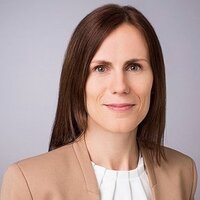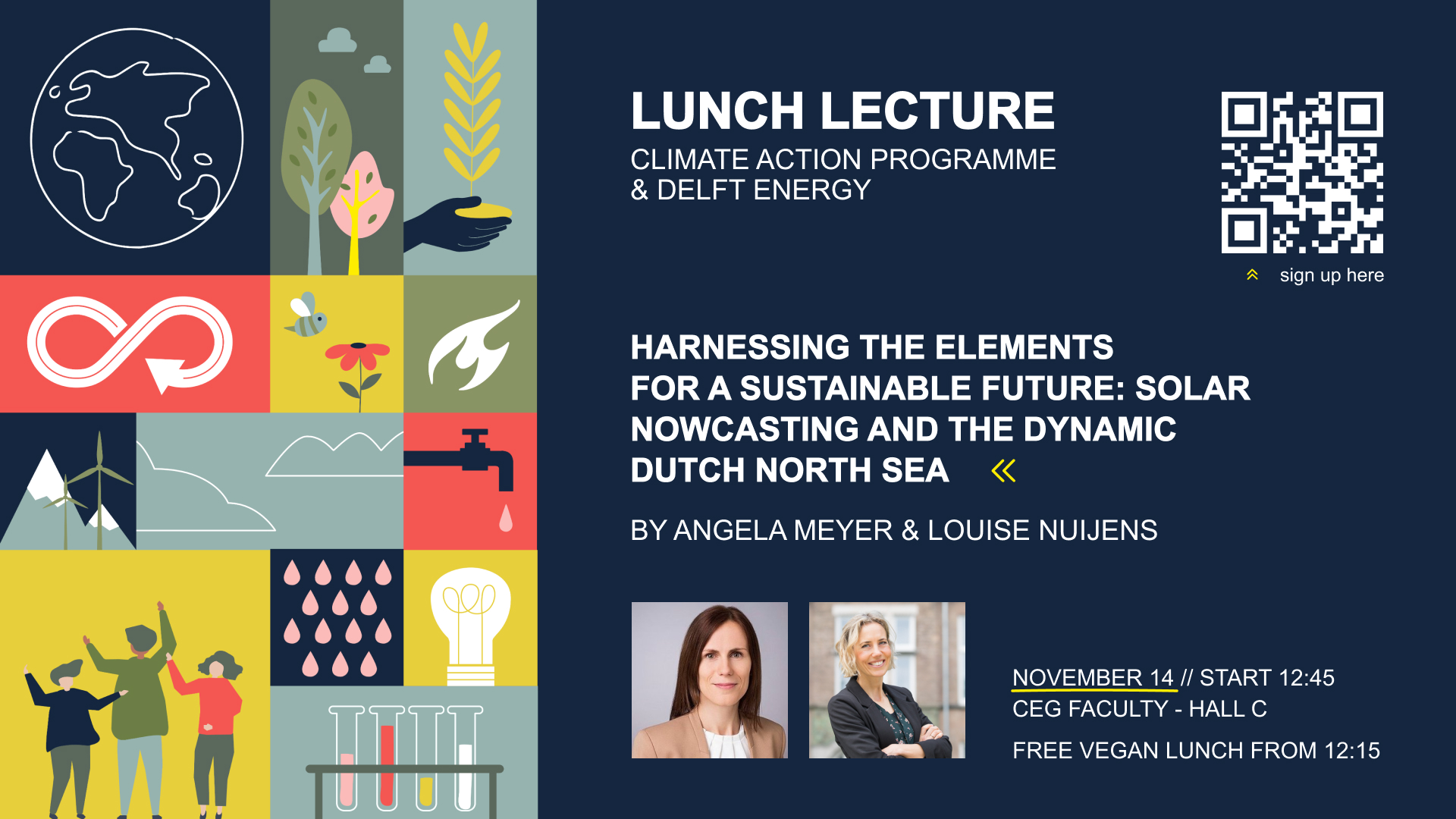Climate Action Programme lecture "Harnessing the elements for a sustainable future"
14 november 2024 12:45 t/m 13:45 - Locatie: TU Delft tbd | Zet in mijn agenda
THIS LECTURE IS CANCELLED.
due to the national protest in Utrecht against university funding cutbacks proposed by the new government. The protest will take place on the same day and time as the lecture.
We want to give everyone the opportunity to participate in the protest if they wish.
More information about the protest can be found here: https://www.aob.nl/actueel/campagne/kabinetsloopthogeronderwijs/
The lecture will continue early next year.
-------------------------------------------------------------------------------------------------------------
You are cordially invited to our November lunch lecture. This lecture is organised together with the TU Delft Energy Initiative.
The lunch will take place during National Climate Week and the TU Delft Energy Hub Week.
Date: Thursday 14 November 2024
Time: 12:45 - 13:45 (free vegan lunch from 12:15 if registered)
Location: TU Delft; Faculty of CEG hall C
Moderator: Pier Siebesma
Registration: is mandatory via this link
"Harnessing the elements for a sustainable future: Solar nowcasting and the dynamic Dutch North Sea"
By Angela Meyer and Louise Nuijens
 Angela Meyer will show that mitigating climate change requires decarbonizing our energy generation which can be achieved through wide-spread harvesting of solar and wind energy. She will explain how accurate forecasts of solar radiation and wind are becoming increasingly important for balancing power supply and demand in the electricity grid as the share of volatile renewable energy is growing. Artificial intelligence and the latest generation of Earth-observing meteorological satellites can provide high-quality renewable energy forecasts to inform energy companies and grid operators. Her talk will demonstrate the potential of artificial intelligence for accurate weather and renewable energy forecasts to shape the path toward a more sustainable and resilient energy system.
Angela Meyer will show that mitigating climate change requires decarbonizing our energy generation which can be achieved through wide-spread harvesting of solar and wind energy. She will explain how accurate forecasts of solar radiation and wind are becoming increasingly important for balancing power supply and demand in the electricity grid as the share of volatile renewable energy is growing. Artificial intelligence and the latest generation of Earth-observing meteorological satellites can provide high-quality renewable energy forecasts to inform energy companies and grid operators. Her talk will demonstrate the potential of artificial intelligence for accurate weather and renewable energy forecasts to shape the path toward a more sustainable and resilient energy system.
Angela Meyer has been an assistant professor of Energy Meteorology and Artificial Intelligence in the Geoscience and Remote Sensing Department of TU Delft since 2023. She has been a research group leader at Bern University of Applied Sciences since 2022. She obtained her PhD in Atmospheric Physics from ETH Zurich and gained industry experience as a data scientist at Hexagon AB and co-leader of an R&D program at Siemens Smart Infrastructure. Her research is supported by the European Commission, the Swiss Innovation Agency and National Science Foundation.
 Louise Nuijens will show that the Netherlands is facing global challenges due to climate change that include not only sea level rise, but also unprecedented warm North Sea temperatures and changing rainfall patterns. She will explain that clouds, solar radiation and wind over the North Sea and coast are part of a dynamic interconnected system that shapes weather and regional climate. Understanding this coupled system is very important as we face our future climate and requires advanced models and extensive data collection. More accurate information of wind, rain, fog and sunshine over the North Sea, one of the busiest coastal seas in the world, is becoming urgent. The North Sea is facing escalating challenges from shipping regulations and marine protection, while evolving into a renewable energy hub with a planned ten-to-twentyfold expansion of wind energy production to make the Netherlands climate-neutral by 2050.
Louise Nuijens will show that the Netherlands is facing global challenges due to climate change that include not only sea level rise, but also unprecedented warm North Sea temperatures and changing rainfall patterns. She will explain that clouds, solar radiation and wind over the North Sea and coast are part of a dynamic interconnected system that shapes weather and regional climate. Understanding this coupled system is very important as we face our future climate and requires advanced models and extensive data collection. More accurate information of wind, rain, fog and sunshine over the North Sea, one of the busiest coastal seas in the world, is becoming urgent. The North Sea is facing escalating challenges from shipping regulations and marine protection, while evolving into a renewable energy hub with a planned ten-to-twentyfold expansion of wind energy production to make the Netherlands climate-neutral by 2050.
Louise Nuijens is an associate professor in Atmospheric Science in the Geoscience & Remote Sensing Department at TU Delft since 2017 and an ECMWF Fellow since 2019. Before coming to TUD, she worked as a Postdoctoral fellow at MIT, and as a group leader of the Observations and Process Studies group in the Atmosphere Department of the Max-Planck Institute for Meteorology in Germany. Her research focuses on unraveling the physical processes that underlie the interaction of convection and clouds with atmospheric circulations (winds) and the implication of such processes for weather and climate. She combines field observations with high-resolution simulations and theoretical models.
Registration: is mandatory via this link
► After the lectures there will be time for questions/discussion with the speakers and the audience
► Please join and bring your peers, this might be a chance to meet colleagues for new collaborations.
► Click here if you want to subscribe or to unsubscribe from the notifications of Climate Action events
► Go to our website
► Follow us on LinkedIn

